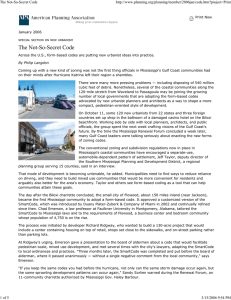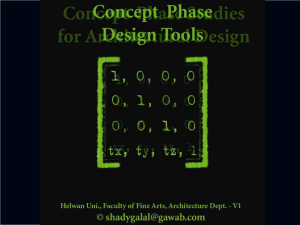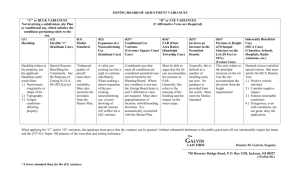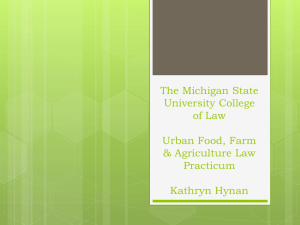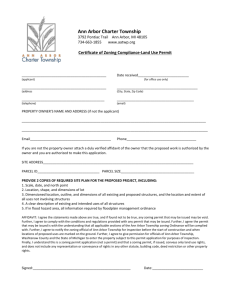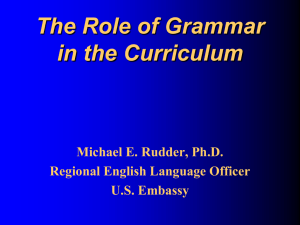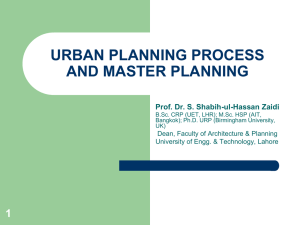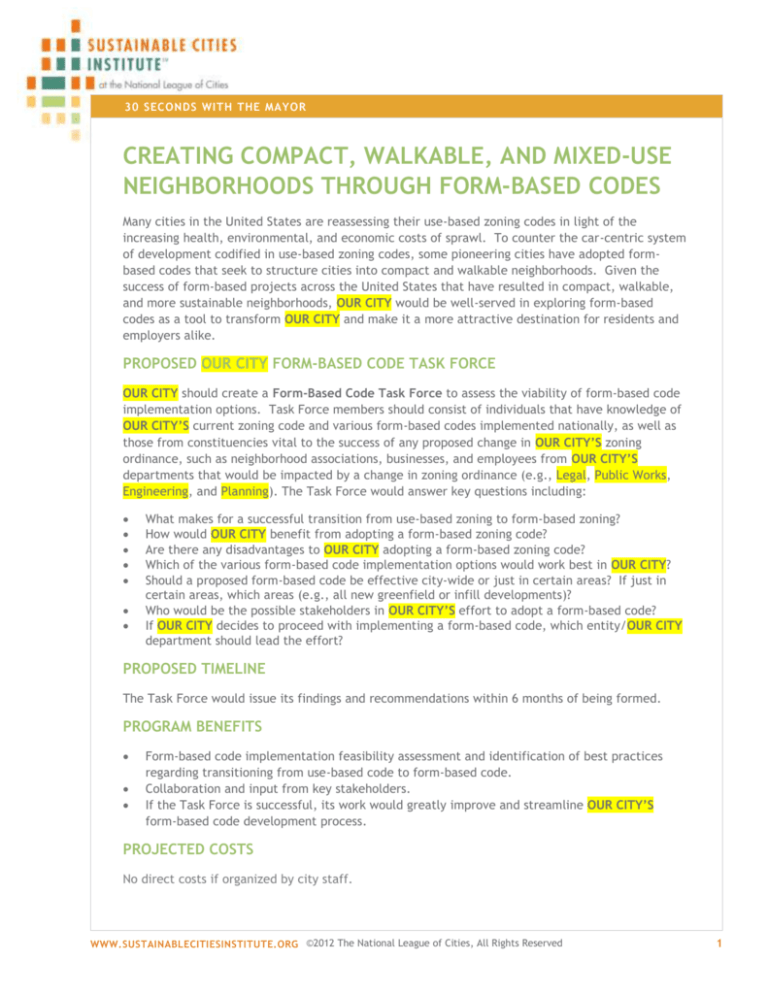
30 SECONDS WITH THE MAYOR
CREATING COMPACT, WALKABLE, AND MIXED-USE
NEIGHBORHOODS THROUGH FORM-BASED CODES
Many cities in the United States are reassessing their use-based zoning codes in light of the
increasing health, environmental, and economic costs of sprawl. To counter the car-centric system
of development codified in use-based zoning codes, some pioneering cities have adopted formbased codes that seek to structure cities into compact and walkable neighborhoods. Given the
success of form-based projects across the United States that have resulted in compact, walkable,
and more sustainable neighborhoods, OUR CITY would be well-served in exploring form-based
codes as a tool to transform OUR CITY and make it a more attractive destination for residents and
employers alike.
PROPOSED OUR CITY FORM-BASED CODE TASK FORCE
OUR CITY should create a Form-Based Code Task Force to assess the viability of form-based code
implementation options. Task Force members should consist of individuals that have knowledge of
OUR CITY’S current zoning code and various form-based codes implemented nationally, as well as
those from constituencies vital to the success of any proposed change in OUR CITY’S zoning
ordinance, such as neighborhood associations, businesses, and employees from OUR CITY’S
departments that would be impacted by a change in zoning ordinance (e.g., Legal, Public Works,
Engineering, and Planning). The Task Force would answer key questions including:
What makes for a successful transition from use-based zoning to form-based zoning?
How would OUR CITY benefit from adopting a form-based zoning code?
Are there any disadvantages to OUR CITY adopting a form-based zoning code?
Which of the various form-based code implementation options would work best in OUR CITY?
Should a proposed form-based code be effective city-wide or just in certain areas? If just in
certain areas, which areas (e.g., all new greenfield or infill developments)?
Who would be the possible stakeholders in OUR CITY’S effort to adopt a form-based code?
If OUR CITY decides to proceed with implementing a form-based code, which entity/OUR CITY
department should lead the effort?
PROPOSED TIMELINE
The Task Force would issue its findings and recommendations within 6 months of being formed.
PROGRAM BENEFITS
Form-based code implementation feasibility assessment and identification of best practices
regarding transitioning from use-based code to form-based code.
Collaboration and input from key stakeholders.
If the Task Force is successful, its work would greatly improve and streamline OUR CITY’S
form-based code development process.
PROJECTED COSTS
No direct costs if organized by city staff.
WWW.SUSTAINABLECITIESINSTITUTE.ORG ©2012 The National League of Cities, All Rights Reserved
1
WWW.SUSTAINABLECITIESINSTITUTE.ORG ©2012 The National League of Cities, All Rights Reserved
2

